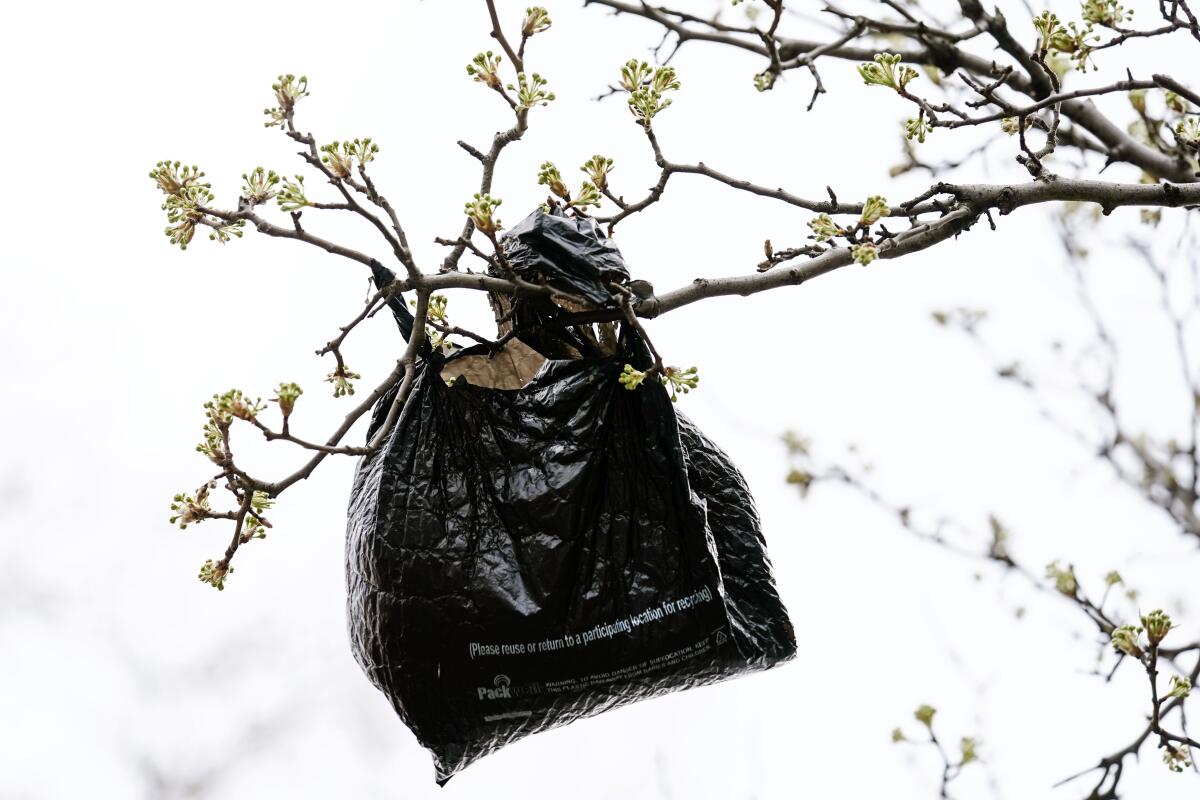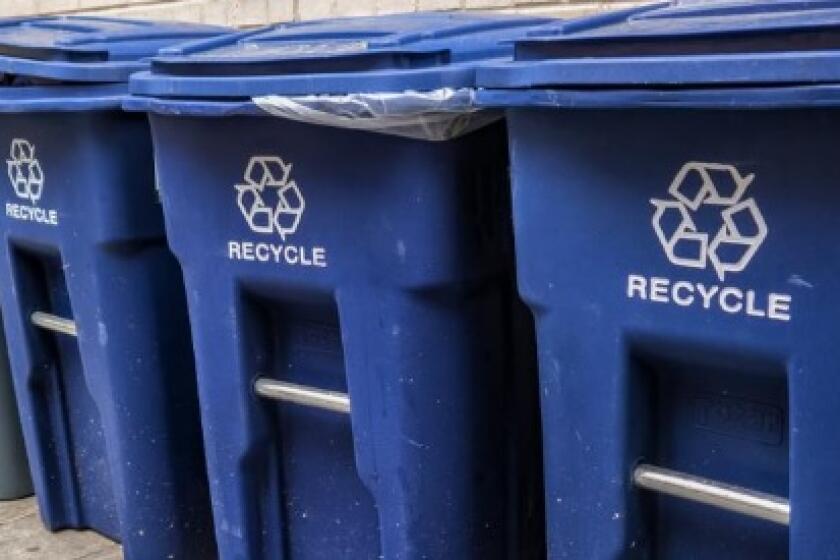What plastic bag ban? California stores still doling out disposable sacks

- Share via
Didn’t we ban single-use plastic shopping bags in California? Yes — in 2014, though the law didn’t take effect until two years later because the plastic industry tried to overturn it on the 2016 ballot.
But you can hardly tell from a trip to the grocery store, where there are still plenty of plastic bags at the checkout, albeit thicker versions that are supposedly better for the environment. (Spoiler alert: They are not.)
The law banning their flimsier cousins required sturdier replacement bags be offered for a fee, reusable up to 125 times and “recyclable in the state.” They would be available for shoppers who forgot to bring their own bags or who need a plastic bag that could be reused many times and would not end up in the waste stream.
But over the last few years the rules haven’t been enforced and distribution of these thicker bags at grocery and other retail stores has proliferated. Also they are generally not being recycled — in the state or anywhere else. “These bags that were intended to be a true reusable bag, a low-cost reuse option, have become de facto single-use bags,” said Mark Murray of Californians Against Waste, one of the organizations leading the fight against disposable plastic packaging.
So much for California’s plastic bag ban. It seems we have simply replaced one environmental menace with another.
The “chasing arrows” symbol on a plastic bag, container or bottle doesn’t mean it actually can be recycled. It’s time to change that so consumers know exactly what they are buying.
That’s why it’s very good news that Atty. Gen. Rob Bonta is cracking down. On Wednesday, he sent letters to the seven leading manufacturers of plastic grocery bags sold in California asking them to provide proof within two weeks that their sacks are being recycled, as claimed, and to explain why some bags sport the “chasing arrows” symbol. (California lawmakers passed a law last year prohibiting the use of that symbol unless the product makers can prove they are actually being recycled.) We can’t wait to see their response.
Proof is going to be hard to come by since, as Bonta said, most, if not all, plastic bags probably aren’t being recycled. The majority of curbside recycling programs aren’t able to handle them and there isn’t a reliable in-state market for their materials, he said. Indeed, environmental groups estimate that less than 6% of all single-use plastic in the United States is recycled.
Does this signal the end of the ubiquitous plastic shopping bag in California, eight years after they were outlawed? We can only hope. It would be a fitting capper to a year in which the California Legislature passed a landmark measure, Senate Bill 54, that could reshape the U.S. plastic trash landscape over the next decade by prohibiting the in-state sale of all types of plastic packaging that can’t be recycled at high rates. Most plastic isn’t expected to meet that standard, so the law would have the effect of forcing the switch to compostable or truly reusable substitutes.
Recycling is not — and never was — a realistic solution to deal with the millions of tons of disposable plastic that is used every year. Like fossil fuels, the only long-term solution is to phase out all single-use plastic — certainly not allow a similarly environmentally bad substitute to take over.
More to Read
A cure for the common opinion
Get thought-provoking perspectives with our weekly newsletter.
You may occasionally receive promotional content from the Los Angeles Times.










